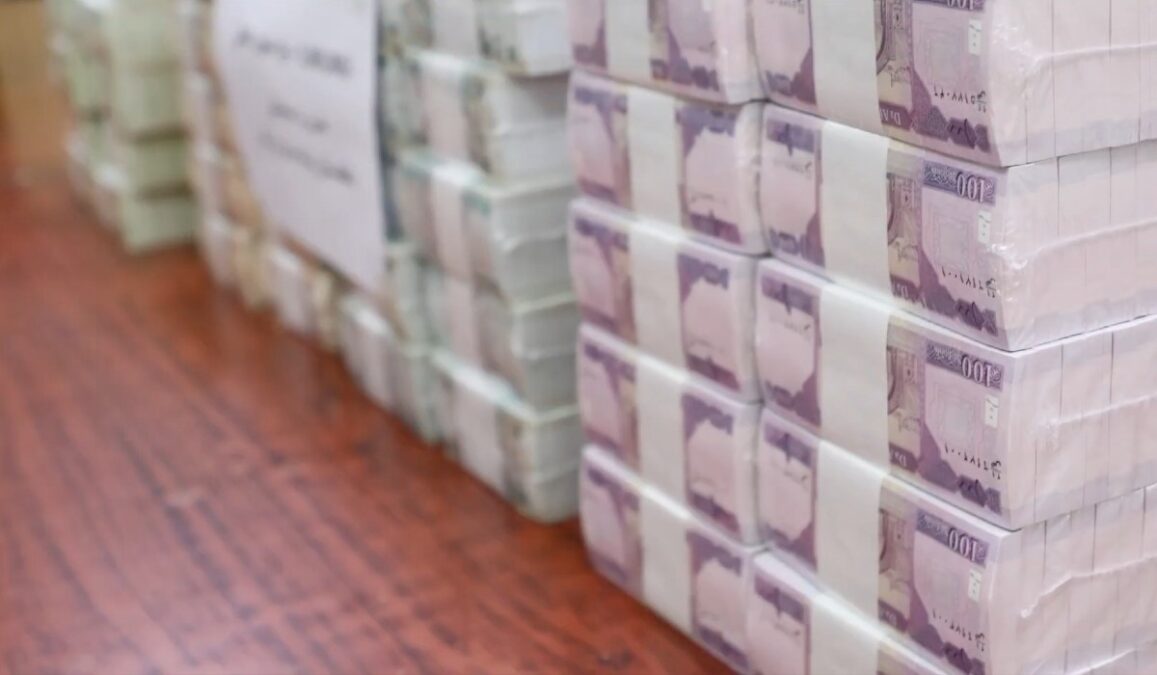Pakistan’s Cabinet Committee for Economic Revival has rejected a proposal to stop Afghanistan from using its foreign exchange market to fulfill its currency requirements, which observers say has negatively affected the value of the US dollar against the rupee.
Pakistan’s Minister for Communication Shahid Ashraf Tarar raised concerns about Afghanistan’s impact on Pakistan’s exchange market at the committee’s inaugural meeting this week. He said people from Afghanistan were purchasing currency from Pakistan to meet their own needs, thereby exerting pressure on the dollar’s price.
A source told Pakistan’s Express Tribune that Tarar on Tuesday urged the committee chairperson Shamshad Akhtar to take action, but this was rebuffed.
Pakistan lawmakers have claimed it is widely assumed that while the Taliban grapples with a shortage of foreign currency due to Western sanctions, Afghanistan was satisfying its trade-related requirements through transactions with Pakistan. This issue is now under official discussion at the cabinet level.
However, the cabinet committee chose not to take steps to address what they claim is an uncontrolled weakening of the rupee against the dollar.
On Wednesday the Pakistani rupee was trading at Rs323 to the US dollar on the open market.
Express Tribune reported that Afghanistan nationals hold an estimated Rs3 trillion, which is approximately one-third of the total currency in circulation. Observers say these holdings are primarily in Rs5,000 denominations and are being used to purchase US dollars on the open market.
On Wednesday, however, at a separate cabinet committee meeting, the interim finance minister Shamshad Akhtar ruled out demonetizing the Rs5,000 note.
This comes amid a steady decrease in the value of the rupee, which has raised enormous concerns among experts and stakeholders in Pakistan.
Observers have pointed fingers at the “grey market” and the “significant interference” by the International Monetary Fund (IMF) in the country’s banking and currency sectors, Dawn News reported.
Critics have said the level of interference into the banking and currency sectors by the IMF is unprecedented.
One currency dealer claimed this heightened level of engagement stems from the IMF’s mistrust of the Pakistan government. “The IMF people interact with the exchange companies and bankers in Pakistan at the lowest level, which was never witnessed before,” a senior banker said.
A high-ranking official of a private bank, who spoke on condition of anonymity, said the government and the State Bank of Pakistan has lost control over the exchange rate and that this would be detrimental to both the rupee and the broader economy.





